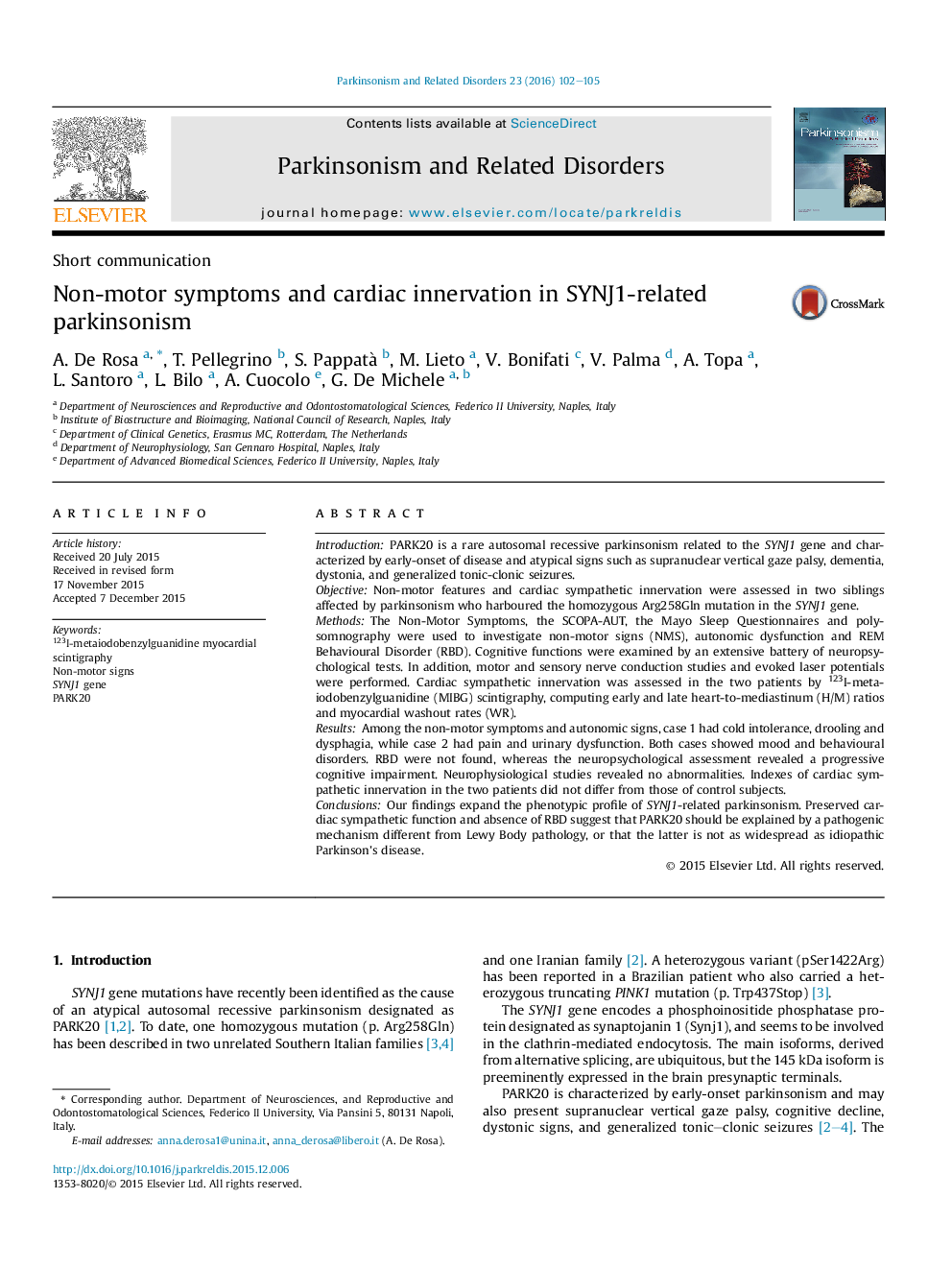| کد مقاله | کد نشریه | سال انتشار | مقاله انگلیسی | نسخه تمام متن |
|---|---|---|---|---|
| 1920380 | 1535826 | 2016 | 4 صفحه PDF | دانلود رایگان |
• We assessed the cardiac sympathetic innervation and non-motor and autonomic signs in PARK20.
• The cardiac sympathetic innervation was assessed by 123I-MIBG myocardial scintigraphy.
• We did not found a myocardial sympathetic denervation.
• PARK20 may be pathogenetically different from idiopathic Parkinson's Disease.
IntroductionPARK20 is a rare autosomal recessive parkinsonism related to the SYNJ1 gene and characterized by early-onset of disease and atypical signs such as supranuclear vertical gaze palsy, dementia, dystonia, and generalized tonic-clonic seizures.ObjectiveNon-motor features and cardiac sympathetic innervation were assessed in two siblings affected by parkinsonism who harboured the homozygous Arg258Gln mutation in the SYNJ1 gene.MethodsThe Non-Motor Symptoms, the SCOPA-AUT, the Mayo Sleep Questionnaires and polysomnography were used to investigate non-motor signs (NMS), autonomic dysfunction and REM Behavioural Disorder (RBD). Cognitive functions were examined by an extensive battery of neuropsychological tests. In addition, motor and sensory nerve conduction studies and evoked laser potentials were performed. Cardiac sympathetic innervation was assessed in the two patients by 123I-metaiodobenzylguanidine (MIBG) scintigraphy, computing early and late heart-to-mediastinum (H/M) ratios and myocardial washout rates (WR).ResultsAmong the non-motor symptoms and autonomic signs, case 1 had cold intolerance, drooling and dysphagia, while case 2 had pain and urinary dysfunction. Both cases showed mood and behavioural disorders. RBD were not found, whereas the neuropsychological assessment revealed a progressive cognitive impairment. Neurophysiological studies revealed no abnormalities. Indexes of cardiac sympathetic innervation in the two patients did not differ from those of control subjects.ConclusionsOur findings expand the phenotypic profile of SYNJ1-related parkinsonism. Preserved cardiac sympathetic function and absence of RBD suggest that PARK20 should be explained by a pathogenic mechanism different from Lewy Body pathology, or that the latter is not as widespread as idiopathic Parkinson's disease.
Journal: Parkinsonism & Related Disorders - Volume 23, February 2016, Pages 102–105
